Storm safety is always on people’s minds during periods of severe weather. It’s important to be aware of the risks and take steps to protect yourself and your loved ones. The most important thing you can do is stay informed. Keep up to date with the latest weather conditions, and know which areas are most at risk. If you live in an area forecast to experience severe weather, stay indoors and away from windows.
If you have to go outside, make sure you have all the appropriate safety measures in place (such as an emergency evacuation plan). Storms are one of the most devastating weather events; even the most seasoned outdoors person can face trouble while off guard. Read on for some safety tips to help ensure your safety during a storm. We’ll cover everything from knowing how to escape a building, in storms, to what to do if stranded in a car.
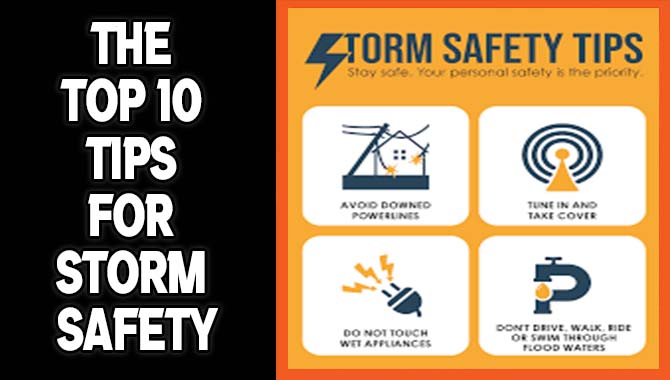
The Top 10 Tips For Storm Safety
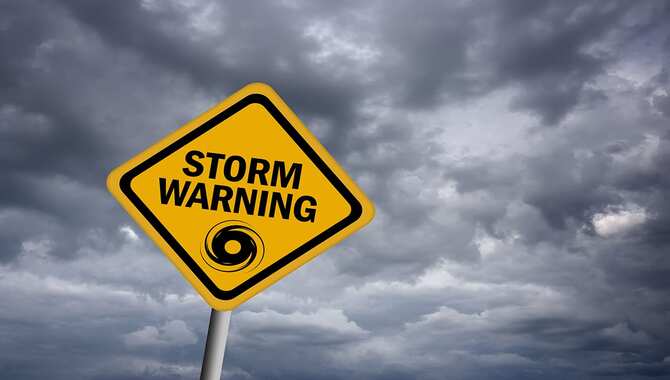
Storm safety is protecting yourself and your loved ones during a storm. There are several things you can do to prepare for a potential storm. Here are ten tips that will help you stay safe during a storm:
1.Keep Updates Of Weather Information:
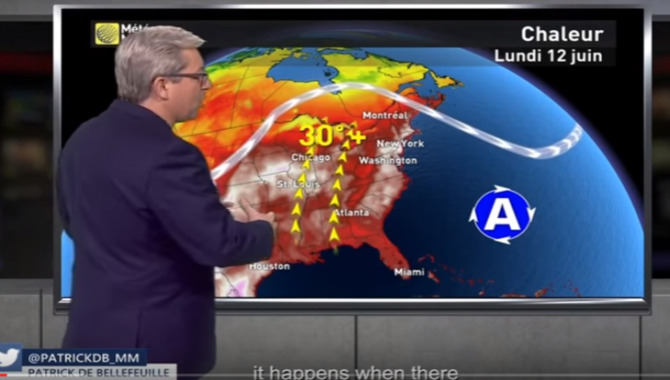
There are various ways to have updates on weather information, including online sources, apps, and even weather radios. Online sources like Google and Yahoo! provide constantly-updated weather forecasts for a variety of cities around the world. They also offer detailed maps showing which areas are affected by specific weather conditions.
Apps like Weather Underground allow you to access real-time weather updates for any global location. You can also customize your alerts to keep you updated with the latest changes. Weather radios can be a great way to stay informed about changing weather conditions without having to go into detail about it on social media or elsewhere online. They’re also convenient because they can be placed anywhere in your house so that you always have easy access to accurate information.
2.Keep An Emergency Kit:
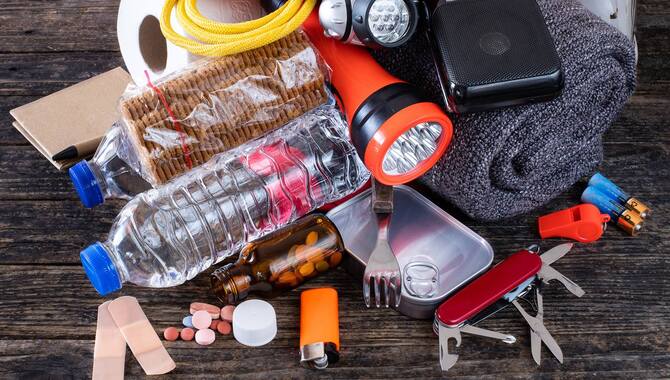
It’s always possible to take action and prepare for a serious emergency. Keep an emergency kit stocked with the essentials you’ll need to survive for at least three days: food, water, shelter, first aid supplies, and communication equipment. Make sure that your kit is accessible and well-organized so that you can easily find what you’re looking for in an emergency.
Include flashlights, batteries, maps, and compasses to find your way in the dark or during a natural disaster. Create labels for each item in your kit to help keep everything organized and easy to access. Be sure to test your kit regularly to ensure it’s up-to-date with the latest safety precautions. And remember: always be prepared for what might come.
3.Check Local Flood Warnings:
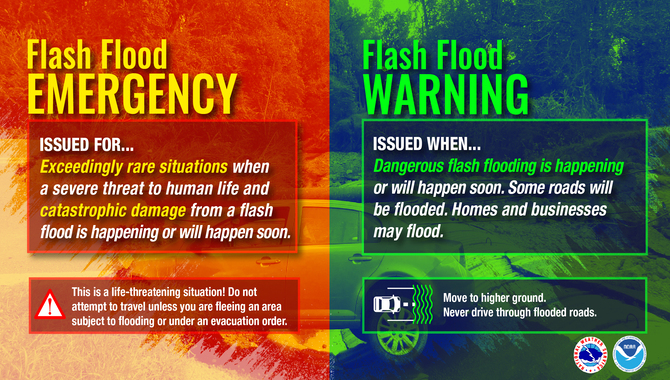
In the event of a flood, it is important to know what local flood warnings exist to make informed decisions. Flood warnings vary depending on the location, but they generally indicate an imminent threat of flooding. If you live in an area that’s susceptible to flooding, it is important to monitor the latest flood warnings and take appropriate precautions. Regularly checking for updated warnings is one way to ensure you’ve preparations for potential emergencies. You can also sign up for emergency notifications to be aware of what’s happening in your area.
4.Develop A Plan:
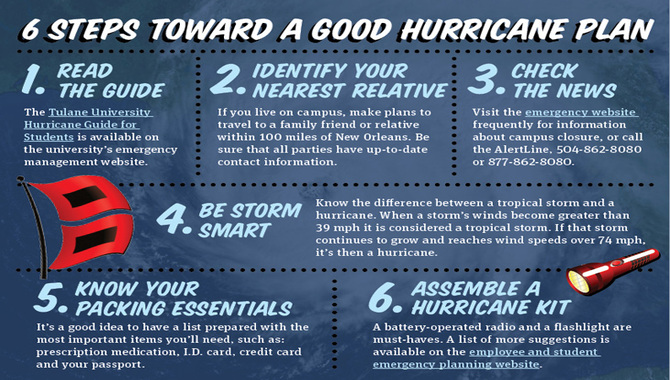
Developing a plan is an essential part of any successful business. With a plan, it’s possible to achieve your goals. A good plan will help you focus on your key objectives and milestones, as well as provide you with detailed steps that you need to take to reach those objectives. It will also detail the resources needed to make your vision a reality. Creating a plan isn’t easy, but it’s worth the effort. By following through with it, you can ensure that your business is successful and fulfilling for you and your customers.
5.Stay Alert:
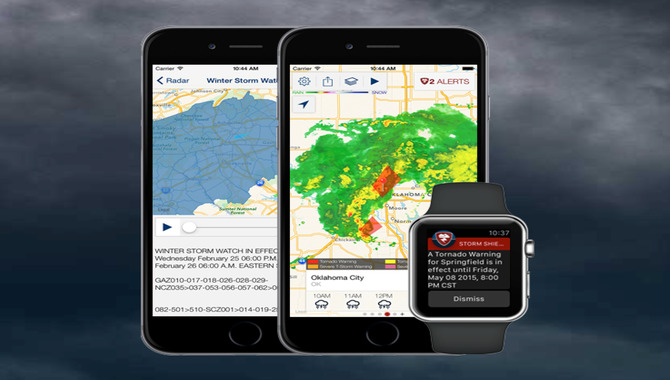
Be prepared for anything – a natural disaster or a terrorist attack. If you are affected by a natural disaster like an earthquake or hurricane, stay alert and make sure you have everything you need. Make sure to have enough food, water, shelter, and medical supplies in case of sickness or injury. If there’s an evacuation order in place, follow it immediately.
In a terrorist attack like the recent one in London, be aware of your surroundings and take steps to protect yourself. Avoid crowded places and situations where you could easily face problems. If there’s an evacuation order in place, obey it without question. Report any suspicious activity to the authorities immediately.
6.Stay Connected:
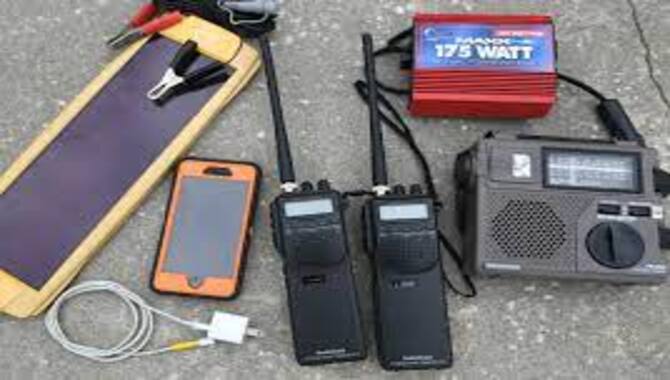
It’s important to stay connected to keep up with the latest news, events, and developments in your industry. You need to have updates on new products and services and the latest trends in your field. There are a variety of ways to stay connected online. Use social media platforms like Facebook or Twitter or sign up for newsletters that contain updates on the latest happenings in your industry.
You could also read blogs and articles about various topics related to your field. And finally, you could attend industry events where you can meet other professionals and discuss issues relevant to your field. By staying connected, you’ll be in a better position to make informed decisions about what’s happening in your industry and what steps you should take next.
7.Be Patient:
It can be tough to be patient while waiting for your investments to pay off. But it’s work it in the long run. The more patient you are, the better your chance of making a profit from your investments. There’s no guarantee that your investments will return anything at all. There’s a good chance that they won’t. However, if you stick with them for a few years, you’ll eventually reap some profits. It may not happen right away, but it will happen eventually. So keep pursuing your investment even if it takes a little longer than you expected -patience is key.
8.Stay Safe:
If you’re in a storm, staying safe and away from windows is the best thing to do. Windows are the most dangerous part of any building during a storm – they can act as missiles and kill you or someone else inside. If there’s an evacuation order, leave through the front door and avoid going through windows.
Whether you have to go inside, use the stairs instead of the elevators. If you have to go outside, stay away from high-rise buildings and tall structures. If you’re near a power line, stay away from it. Power lines can be dangerous during a storm because they can spark and start fires. Finally, if you’re in a car during a storm, don’t stop on the side of the road. Stop where there’s plenty of room to turn around and get out safely.
9.Stay With Family And Friends:

Staying with your family and friends in tough times is always important. This is especially true during financial hardships – when it can be hard to make ends meet. Instead of turning to strangers for help, staying with those you know and trust is better. This will give you a support system you can rely on, making things a lot easier.
Plus, staying connected with your loved ones will help reduce the stress of the situation. You can keep in touch by talking regularly, sending pictures and videos, or even just chatting online. And if you need to share any major changes or updates, don’t hesitate to do so – your loved ones won’t mind at all.
10.Follow Local Traffic Conditions:

It’s important to keep up with local traffic conditions to avoid potential accidents. By following the latest traffic updates, you’ll be able to stay safe on the roads. There are several different ways to get updates about local traffic conditions. You can check online sources like Twitter or your favorite news website or scan for specific keywords like “traffic” or “accident”. If you’re driving in a foreign country, following the local traffic rules is especially important. Make sure you know the signs indicating when it’s safe to turn and when it’s not, and always drive carefully in unfamiliar territory.
What To Do If Your Home Is Inaccessible Due To A Storm
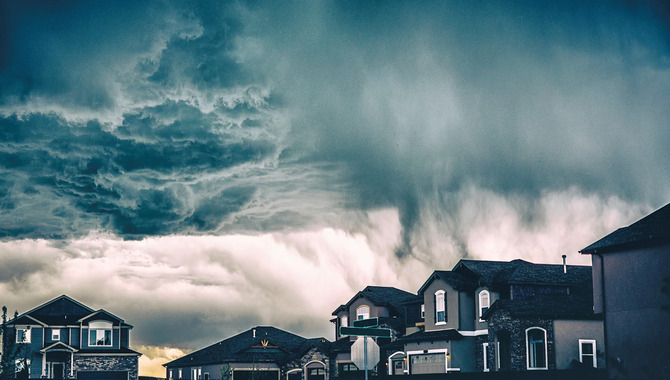
If your home is inaccessible due to a storm, there are a few things that you need to do to stay safe. The first thing that you should do is call your insurance company and let them know about the situation. They’ll be able to help you file a claim and get updates on the progress of the repairs.
Next, ensure that you have enough food, water, and emergency supplies prepared whether you need to stay in your home for an extended period. You should also keep a list of phone numbers for local officials and emergency services so you can easily contact them if necessary. Finally, ensure that everyone in your family knows how to use basic safety precautions like staying inside during a storm and turning off all electricity when necessary.
Conclusion
No one wants to get into a dangerous situation because of rain and wind. To keep yourself secure during heavy-to-severe weather, always follow these top 10 safety tips. From keeping windows closed when lightning strikes to ensuring your pets are secured indoors, there is no end to the reminders we’ve just given you. In case this article missed out on anything important, make sure you share it with friends and family members too. Not only will they be able to come prepared, but they will also save themselves from any potential danger in advance.
Frequently Asked Questions:
1.What Are The Most Important Things To Remember About Storm Safety?
Ans: It would be best if you always kept a few things in mind when it comes to storm safety. First and foremost, always heed safety warnings from the government. Second, stay updated on weather conditions to make informed decisions about where to go and what to do if a storm hits.
2.Do I Need To Be Concerned About My Family Members Who Live Far Away From Me During A Storm Event?
Ans: If a severe storm is headed your way, you should evacuate your family and friends as soon as possible. Keep them updated with the latest weather conditions so that they know when it’s safe to come back home. If you live far away from your family during a storm event, make sure to have emergency contact information for them in case of an evacuation.
3.Is There Anything Else That I Can Do To Prepare For A Hurricane Or Tornado?
Ans: There are a few things that you can do to prepare for weather-related events like hurricanes and tornadoes.
- Know the signs of a hurricane and be aware of what to do if you see them. This includes staying alert for wind speeds above 66 mph and rainfall amounts that surpass 33 inches.
- Make sure your home is properly prepared for wind and flooding, including putting in sandbags and lining up supplies.
- Remember to take pictures of your stormy exterior and make a list of essential documents like passports, driver’s licenses, etc.
4.Where Can I Find More Information About Weather Alerts, Evacuation Routes, And Other Storm Safety Tips?
Ans: One of the best ways to stay safe during a storm is to be well informed. To get started, you can visit FEMA’s website or follow local news stations for storm safety information. Another great way to stay safe is by having an evacuation plan ready. Also, make sure to have food and water on hand in case of a natural disaster. And lastly, if you are stranded at home during a storm, try not to turn on the electricity or run the gas stove – these activities could create dangerous sparks that could start a fire.
5.Do I Need To Be Concerned About My Family Members Who Live Far Away From Me During A Storm Event?
Ans: There is no need to be worried about your family members who live far away from you during a storm event. The National Hurricane Center (NHC) will provide updates on the progress of storms and notify people in vulnerable areas as needed.

Leave a Reply